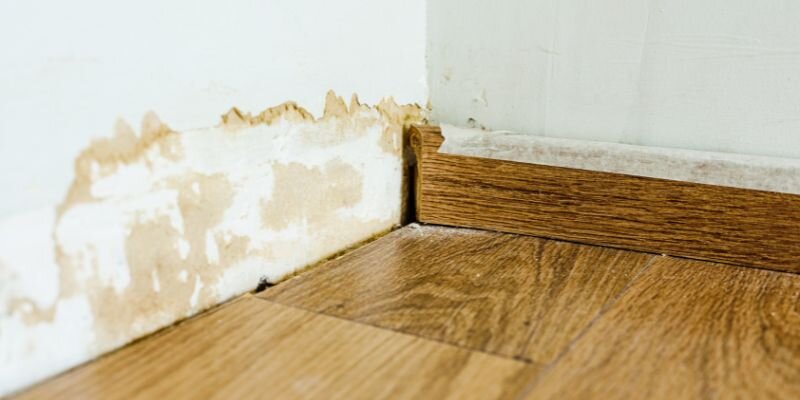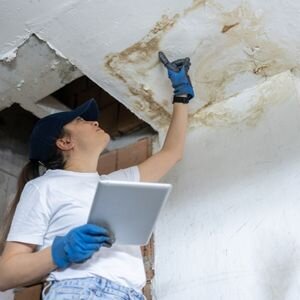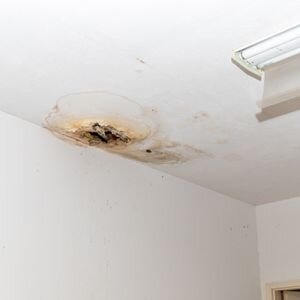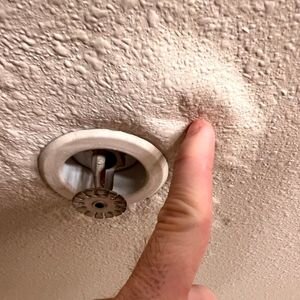
Understanding Tenant Damage to Property Laws in Virginia
Landlords and homeowners in Virginia would do well to familiarize themselves with the regulations of tenant damage to property in order to efficiently manage rental properties. The duties of the landlord and the tenant with regard to the upkeep of a rental property are defined by the state’s landlord-tenant legislation.
Landlords must provide a habitable living space, while tenants must ensure they do not inflict undue damage beyond typical wear and tear. Under Virginia law, any intentional or negligent damage caused by tenants can be grounds for deductions from the security deposit or even legal action if necessary.
Landlords should conduct regular inspections and document the condition of their properties before and after tenancy to provide clear evidence in case disputes arise. The Virginia Residential Landlord and Tenant Act (VRLTA) specifies that landlords must return security deposits within 45 days after lease termination, minus any deductions for damages.
Both parties benefit from outlined lease agreements that specify maintenance responsibilities and procedures for reporting repairs, ensuring compliance with state regulations while protecting property investments. Understanding these laws helps landlords navigate tenant relationships legally and equitably, preventing costly disputes over property damage. The Cash Offer Company can help landlords and homeowners better understand their rights and options when facing these situations.
Key Responsibilities of Tenants Under Virginia Rental Agreements
Tenants in Virginia have certain duties under their rental agreements that are important for keeping the property in good shape. Tenants are responsible for keeping the property clean and safe and following health and safety rules that apply to where they live.
They need to be careful not to do any harm beyond what is expected from regular use and dispose of trash correctly. It is the responsibility of the renter or their guests to correct or pay for any damages that may be caused.
Tenants should also reasonably use plumbing, electrical, heating, and air conditioning fixtures to prevent unnecessary damage or excessive utility bills. Another key responsibility is promptly notifying landlords about maintenance issues that could lead to further property damage.
This proactive communication can prevent minor problems from escalating into costly repairs. By understanding these obligations, tenants in Virginia can ensure they uphold their end of the rental agreement while protecting both their rights and the landlord’s property investment.
Differentiating Normal Wear and Tear From Tenant Damage in Virginia
Landlords and homeowners in Virginia must be able to tell the difference between typical wear and tear and damage caused by tenants. Things like mild carpet fraying, fading paint, and scuff marks on floors are examples of normal wear and tear that happens over time as a result of constant use.
Landlords consider these inevitable and should anticipate them as part of maintaining a rental property. In contrast, tenant damage goes beyond this expected depreciation and includes issues caused by negligence or misuse, like broken windows, holes in walls, or significant stains on carpets.
Understanding these differences is essential for Virginia landlords when assessing security deposit deductions or addressing repairs at the end of a lease term. State law protects tenants from unfair charges by requiring landlords to differentiate clearly between the property’s natural aging and actual damage inflicted by tenants.
Understanding the difference between normal wear and tenant-caused damage, as explained in Understanding The Costs Of Replumbing Your Virginia Home, enables landlords to meet their legal obligations and maintain their property for future occupants, as required by Virginia’s landlord-tenant laws.
Landlord Rights Regarding Property Damage in Virginia Rentals

In Virginia, landlords have specific rights regarding tenant property damage in rental properties. Understanding these rights is crucial for effectively managing rental units and protecting investments.
Under Virginia law, tenants are responsible for keeping the premises clean and safe and must not deliberately or negligently damage the property. Suppose a tenant causes damage beyond normal wear and tear. In that case, landlords can make necessary repairs and deduct the costs from the tenant’s security deposit once proper documentation is provided.
For an accurate assessment, landlords should check the property thoroughly both before and after a tenant moves in or out. They need to take pictures and keep extensive records in case they need to use the security deposit as proof of any problems.
Virginia law also permits landlords to pursue legal action against tenants for damages exceeding the security deposit amount required. Being familiar with these rights empowers landlords to handle disputes over property damage more efficiently while ensuring compliance with state regulations.
Legal Recourse for Property Damage Disputes Between Tenants and Landlords in Virginia
When renters cause damage to rental property in Virginia, the landlord or owner has various legal options to deal with the situation. Usually, the first thing to do is look over the lease. It should spell out who is responsible for keeping the rental property in good repair and what happens if the tenant causes damage.
Landlords have the right, under Virginia’s security deposit legislation, to demand repairs out of the security deposit in the event that a tenant breaches these terms, but only after they follow the correct processes. If the tenant disputes the deductions or the damages exceed the security deposit, landlords may have to take the matter to small claims court to get their money back.
To support their cause, landlords must carefully record all damage with receipts, photos, and estimates of how much it will cost to fix. Also, it’s important to know the landlord-tenant rules in your own state. For example, Virginia law requires certain notices and steps to be taken before going to court.
People who want to settle their disagreements without going to court can also use mediation services. Talking to a Virginia real estate lawyer can help you handle these disagreements in a way that is appropriate.
Steps Landlords Can Take When Tenants Cause Property Damage in Virginia
When landlords in Virginia discover tenant-caused property damage, they must act swiftly and follow a structured process to address the issue effectively. First, landlords should thoroughly document the damage with detailed photographs and written descriptions to establish a clear record.
This paperwork is very important if court action is needed. Next, it’s important to look over the lease agreement to make sure everyone knows what their specific duties and obligations are when it comes to damage and property upkeep.
It is recommended to notify the tenant in writing of the damage and ask for their plan for repairs or compensation as soon as possible. Assume that a peaceful conclusion is not possible. So long as they follow Virginia law about deductions and when to refund any residual balance, landlords in the state can use the security deposit to pay for repairs.
In cases where damages exceed the security deposit or disputes arise, pursuing legal action may be necessary through small claims court to recover additional costs. Understanding Virginia’s landlord-tenant laws is critical throughout this process to ensure all actions comply with state regulations and fair housing practices. For landlords exploring alternative solutions, learn more about how our process works when selling a property with tenant-related challenges.
The Impact of Security Deposits on Covering Tenant Damages in Virginia
It is recommended to notify the tenant in writing of the damage and ask for their plan for repairs or compensation as soon as possible. Assume that a peaceful conclusion is not possible. So long as they follow Virginia law about deductions and when to refund any residual balance, landlords in the state can use the security deposit to pay for repairs.
Landlords use this deposit as a crucial tool to maintain their properties in top condition. Tenants can use it to repair damages beyond normal wear and tear. Virginia law mandates that landlords provide tenants with a written itemized list of deductions from the security deposit within 45 days of lease termination, ensuring transparency and fairness in handling tenant-induced damages.
Understanding how these deposits function helps landlords prepare for possible financial liabilities while complying with Virginia’s legal requirements. In some cases, property owners may choose to sell your Virginia house faster instead of dealing with ongoing disputes and costly repairs.
How to Document and Prove Tenant-caused Damages in a Virginia Rental Property

In Virginia, effectively documenting and proving tenant-caused damages in a rental property is crucial for landlords and homeowners seeking to protect their investments. Start by conducting a thorough move-in inspection with the tenant, using a detailed checklist to document the property’s condition with photographs or video evidence.
This baseline will prove invaluable should disputes arise later. During the tenancy, maintain regular inspection records and promptly note any necessary issues or repairs due to tenant negligence or misuse.
When damage is observed, take immediate action by gathering photographic evidence and obtaining repair estimates from licensed professionals, which can serve as objective proof of costs incurred. Keep all communication with the tenant documented in writing, including emails or certified letters discussing the damage and required repairs.
In Virginia, landlords also need to know what the law says about protection deposits. Making sure that state rules about deposit deductions are followed will help their case if they need to go to court to get money for damage the tenant caused to the property.
Preventative Measures for Reducing Tenant Damage to Rental Properties in Virginia
In Virginia, landlords and homeowners can take several preventative measures to minimize tenant damage to rental properties. One effective strategy is conducting thorough tenant screenings, including background checks and credit evaluations, to ensure responsible occupancy.
Implementing a comprehensive lease agreement that clearly outlines maintenance responsibilities and rules regarding property use is crucial. Regular property inspections allow landlords to identify potential issues early and address them before they escalate.
Teaching renters how to take care of and maintain a property properly, like how to do small repairs or report damage right away, makes them feel like they own it. Putting money into long-lasting materials for areas that get a lot of use, like floors and tables, can really cut down on wear and tear over time.
Open communication between tenants and landlords helps resolve issues quickly and maintains a cooperative relationship that prioritizes the property’s upkeep. In Virginia’s diverse rental market, these proactive steps are essential for safeguarding real estate investments against unnecessary tenant-induced damage.
Understanding the Role of Renter’s Insurance in Covering Damages in Virginia Properties
In Virginia, renter’s insurance is a must if a roommate damages your property. This kind of insurance protects renters by covering their personal belongings and holding them responsible for damage they may cause to the rental property.
In Virginia, landlords often encourage or require renters to obtain this insurance to mitigate potential financial losses from unforeseen incidents like fire, water damage, or accidental breakage. While renters’ insurance primarily protects the tenant’s possessions, it also offers liability protection that can cover the costs if a tenant accidentally damages the landlord’s property.
This might be a kitchen fire or water overflow that affects other units or shared spaces. Landlords and homeowners in Virginia need to know these things about renters’ insurance so they can secure their homes and avoid arguments about who is responsible for damages.
By requiring tenants to carry adequate renters’ insurance, landlords can foster a more secure rental environment and reduce the risk of costly repairs caused by tenant mishaps.
Guidelines for Assessing Repair Costs From Tenant-Induced Property Damage in Virginia
In Virginia, assessing repair costs for tenant-induced property damage requires landlords and homeowners to follow specific guidelines to ensure fair and accurate evaluations. First, inspecting the property and meticulously documenting all damages thoroughly is crucial.
Landlords should take photographs and detailed notes as evidence of tenants’ damage. Understanding the damage’s scope helps obtain accurate estimates from licensed contractors or repair professionals familiar with local Virginia regulations.
It is advisable to gather multiple quotes to compare costs and ensure they align with Virginia’s market rates. Landlords must differentiate between normal wear and tear, typically not chargeable to tenants, and actual damage that exceeds ordinary use.
By looking at the lease deal, you can find out exactly what the tenant is responsible for under Virginia law. Landlords can figure out what repairs should cost and make sure they follow the law in Virginia when it comes to security deposits and tenants’ rights by keeping good records and following these rules.
How Eviction Laws Relate to Tenant-caused Damages Under Virginia Law
In Virginia, understanding how eviction laws relate to tenant-caused damages is crucial for landlords and homeowners. Under Virginia law, property damage caused by a tenant can be grounds for eviction if the damage violates the terms of the lease agreement or significantly impacts the property’s habitability.
Landlords must follow the statutory eviction process, which begins with providing proper written notice to the tenant, often a 30-day notice to remedy or vacate if the lease violation involves damage. If tenants fail to address the damages or vacate within this period, landlords can file an unlawful detainer action in court.
During this legal proceeding, evidence of tenant-caused damages must be presented clearly to support claims for eviction and potential compensation. Virginia law allows landlords to deduct costs for repairing such damages from the security deposit; however, they must provide an itemized list of deductions within 45 days after tenancy ends.
Understanding these legal nuances helps landlords handle situations involving property damage effectively while complying with state regulations protecting landlord rights and tenant obligations.
Resolving Disputes Over Alleged Tenant Damages Through Mediation or Court Proceedings in Virginia
In Virginia, parties typically have to decide between mediation and litigation when settling disputes over claimed damage to rental property. A neutral third person mediates negotiations between landlords and tenants in a less confrontational setting, allowing the parties to air their grievances in private.
This process can be quicker and more cost-effective than going to court, enabling landlords and tenants to reach a mutually agreeable solution without legal proceedings. However, suppose mediation fails or is not an option; depending on the extent of the damages involved, landlords may need to consider filing a lawsuit in small claims or general district court.
Both parties present evidence in court, such as photos of the property’s condition, repair estimates, and lease agreements. The judge then determines liability based on Virginia’s landlord-tenant laws.
Understanding these legal avenues helps landlords efficiently resolve disputes over tenant property damage while safeguarding their property rights under Virginia law. However, some homeowners prefer to avoid lengthy disputes altogether by working with cash home buyers in Norfolk for a quick and hassle-free exit.
Common Misconceptions About Liability for Property Damage Among Tenants in Virginia Rentals
A lot of landlords and homeowners in Virginia have the wrong idea about who is responsible for damage to their properties when a tenant moves out. This can lead to misunderstandings and court disputes. Many people have the wrong idea that tenants are instantly responsible for any damage that happens while they are renting.
However, Virginia law distinguishes between normal wear and tear and actual property damage. While tenants are generally liable for damages caused by negligence or misuse, they are not responsible for the natural deterioration of the property over time.
Another false belief is that security fees can always be used to cover any kind of damage. In fact, there are rules about how these deposits can be used, and landlords have to show proof that the tenant is responsible for any deductions.
Also, some landlords think wrongly that their homeowner’s insurance will always cover damage caused by tenants, but many plans don’t cover this unless it’s made clear that they will. To avoid disagreements about who is responsible for damage to the rental property in Virginia, both parties must understand their roles as spelled out in the lease agreement and by state law.
Legal Obligations of Landlords When Addressing Repairs From Tenant Damages Under Virginia Law
Under Virginia law, landlords have specific legal obligations when addressing repairs resulting from tenant property damage. Understanding these responsibilities is crucial for landlords to ensure compliance and maintain a harmonious landlord-tenant relationship.
In Virginia, landlords have to fix any problems right away that make the renting property unlivable, even if the tenants caused the damage. They usually have the right to get the renter to pay for these repairs, either by taking money out of the security deposit or demanding direct payment.
Landlords must provide written notice to tenants detailing the damages and expected repair timelines, ensuring transparency in communication. Failure to adhere to these legal obligations can lead to disputes or potential legal action from tenants, making it imperative for landlords to document all communications and repair efforts diligently.
Understanding these requirements helps landlords protect their investment while upholding tenant rights under Virginia law.
What Is the Property Damage Law in Virginia?
In Virginia, property damage law is critical for landlords and homeowners to understand, particularly when dealing with tenant-related issues. Under Virginia law, property damage refers to any harm or alteration caused by a tenant that goes beyond normal wear and tear.
Landlords must be familiar with the Virginia Residential Landlord and Tenant Act (VRLTA), which outlines the responsibilities of both parties regarding property maintenance and repairs. According to the VRLTA, tenants must keep the rental premises clean and safe, avoid deliberately damaging the property, and report any necessary repairs promptly.
If a landlord discovers tenant-caused damage, they can use the security deposit to cover repair costs, provided they follow proper procedures, such as conducting move-in and move-out inspections. Documentation is crucial in these cases; landlords should maintain detailed records of the property’s condition before and after tenancy.
Understanding these legal nuances helps landlords protect their investments while ensuring fair treatment of tenants under Virginia’s property damage laws.
Can You Sue a Tenant for Property Damage?
In Virginia, landlords and homeowners have the legal right to sue a tenant for property damage if the tenant has violated the terms of the lease agreement or caused intentional or negligent harm to the rental property. Before initiating a lawsuit, it is crucial to document all damages thoroughly, including photographs, repair estimates, and any relevant communication with the tenant.
The landlord should review the lease agreement to confirm that it outlines tenant responsibilities regarding property maintenance and damage prevention. In cases where a security deposit does not cover the extent of the damage, pursuing legal action in small claims court may be necessary.
Landlords must demonstrate that the damages exceed normal wear and tear and provide evidence to substantiate their claim against the tenant. Consulting with an experienced attorney familiar with Virginia’s landlord-tenant laws can help them navigate this process effectively.
Understanding these legal options ensures landlords can seek compensation for significant property damage while upholding their rights under Virginia law.
How Long After You Move Out Can a Landlord Charge You for Damages in Virginia?

In Virginia, understanding the timeframe within which a landlord can charge a tenant for property damage is crucial for both landlords and homeowners. According to Virginia state law, after a tenant moves out, landlords have 45 days to thoroughly inspect the property and assess any potential damages beyond normal wear and tear.
This period allows landlords to identify issues attributable to tenant negligence or misuse. Once damages are assessed, landlords must provide an itemized statement detailing the costs of repairs or replacements necessary due to tenant-caused damage.
Landlords must adhere to this 45-day window, as failing to do so may limit their ability to legally charge former tenants for damages. Additionally, maintaining clear records and photographic evidence of the property’s condition before and after tenancy can support claims and help resolve disputes efficiently.
Understanding these legal requirements ensures that Virginia’s rental laws protect both landlords and tenants.
What Are the Repair Rights for Tenants in Virginia?
In Virginia, tenants have specific repair rights that landlords and homeowners must understand. According to Virginia tenant law, tenants can request repairs for issues affecting the health and safety of the living environment.
Landlords must maintain rental properties in a habitable condition, adhering to the Virginia Residential Landlord and Tenant Act (VRLTA) standards. Tenants should first notify their landlord in writing about any necessary repairs, providing a reasonable timeframe for completion.
Suppose a landlord fails to do the repairs. Tenants have the right to undertake “repair and deduct,” where they pay for essential repairs and deduct the cost from their rent. However, this must be done according to the act. Tenants can file a complaint if property conditions violate housing codes.
Understanding these repair rights helps both parties fulfill their responsibilities and maintain a positive landlord-tenant relationship in Virginia.
Helpful Virginia Blog Posts
- Sell your House As-Is in Virginia
- Sell a House without Realtor
- Selling a House in Virginia with Probate
- How to Sell a House With Code Violations in Virginia
- How to Sell a Rental Property in Virginia (With or Without Tenants)
- Should I Sell My House Fast or Wait?
- Sell your Virginia House as-is
- Behind on Mortgage Payments in Virginia?
- Selling an Inherited House in VA
- Stress-Free Cash Home Sales in Virginia
- Comprehensive Guide To Tax Implications Of Selling Your Home In Virginia
- Optimal Season For Selling Your Home In Virginia’s Real Estate Market
- Effective Strategies For Selling A Virginia Home With Title Complications
- Understanding Tenant Property Damage In Virginia
- Understanding The Costs Of Replumbing Your Virginia Home

| LICENSEE | TENANCY AT WILL | RICHMOND, VA | RICHMOND | RICHMOND, VIRGINIA | LEASING |
| DWELLING | RENTING | REASONABLE WEAR AND TEAR | PAYMENT | INSURANCE COMPANY | INSURER |
| INSURANCE CLAIMS | INSURANCE COMPANIES | PREMIUM | INFORMATION | PROPERTY MANAGEMENT | POLICY |
| LAWSUITS | DRYWALL | COURTS | RESTITUTION | ORDINANCE | FEE |
| LAWYER | INTEREST | CONTRACTS | BUILDING CODE | WALLPAPER | INSURANCE POLICIES |
| DOORS | ATTORNEY’S FEES | ATTORNEYS’ FEES | AIR-CONDITIONING | SMOKE ALARMS | SMOKE |
| NOTHING | NORTHERN VIRGINIA | MAP | MANAGEMENT | LEGAL ASSISTANCE | LEGAL AID |
| EXPENDITURE | EXPENSES | EMPLOYMENT | DISCRIMINATION | DIALOGUE | CODE OF VIRGINIA |
| THE TENANT MAY | BY THE TENANT | THE TENANT AND |
